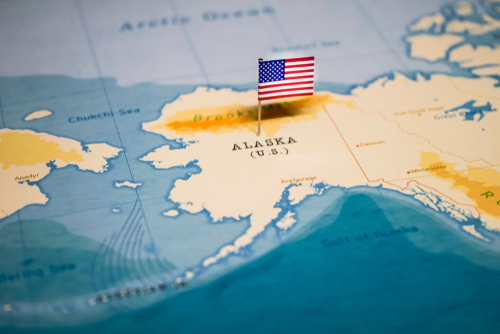
Border Adjustment Tax: Another Horrible Idea From The Swamp
Despite yearslong pushback from small businesses, manufacturers, and consumers, Congress is once again considering carbon border adjustment tax legislation which will unfairly impact the oil and gas industry right here in Alaska. Record high inflation, a looming debt crisis, and the potential for an economic recession don’t seem to be enough to dissuade eco-centric Congressional members and environmental extremists from attempting to push through this destructive legislation. Even more unfortunate is that several Republicans are helping to draft this legislation and pledging support.
This legislation has many problems, with the very nexus hinging on the false argument that carbon is a pollutant that must be reduced through whatever means necessary. Regardless of the impetus for considering the legislation, the mechanics of the bill are just plain awful. It would impose a tax, or tariff, on imported goods including aluminum, paper, steel, petroleum, among others, based on the carbon content of the product. Supportive members in Congress and activist organizations allege this tax would discourage pollution from other countries who do not currently meet U.S. standards, or they would face a penalty. However, the real result of this tax would strain America’s businesses and increase costs for consumers while providing no benefit to the environment. David Weisbach, an expert in carbon border tariffs, has said these taxes would “unquestionably” raise prices for U.S. consumers earning less than $400,000 a year.
Despite interest expressed by some Senate Republicans in recent years, proposals pushed by climate activists have thus far been roundly defeated. The ramifications of such a tax would be detrimental for Alaska families and businesses across our state. The cost of producing several important goods would skyrocket while the price of importing goods would simultaneously increase. Who wins in this scenario? If passed, a carbon border tax would push businesses to pass these rising costs directly on to consumers. All Americans would pay this misguided tax.
In Alaska, we would see a direct hit on the oil and gas, refining, and mining operations as these industries would lose the ability to invest in new projects as well as maintain current operations without passing on higher costs to customers and consumers. Crazy ESG policies have put a target on the back of Alaska’s oil and gas industry and already make it incredibly difficult to attract capital to invest in new energy projects here. An additional tax would only add to creating a hostile business environment. The road back to energy independence does not include a carbon border adjustment tax.
Alaska families are already struggling to keep up with the high cost of groceries and everyday goods and are staring down rising gas prices ahead of the summer travel season. This legislation stands in direct contradiction to the fiscally responsible policies needed at a time when Republicans are the only party willing to make spending cuts and tax less.
Thoughtful discussions are hopefully underway to tackle the nation’s fiscal situation. Entertaining consideration of a carbon border tax at a time of economic uncertainty should not be on the table for Congress.
June 1, 2023